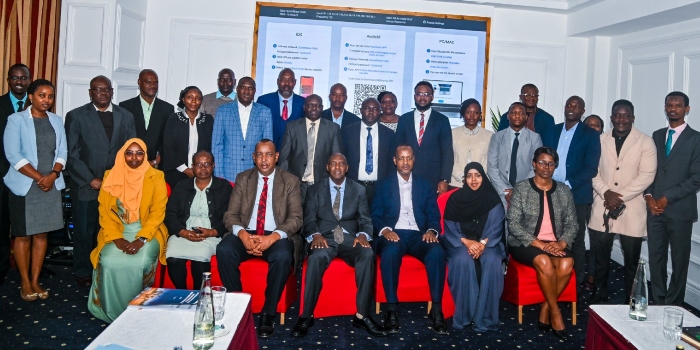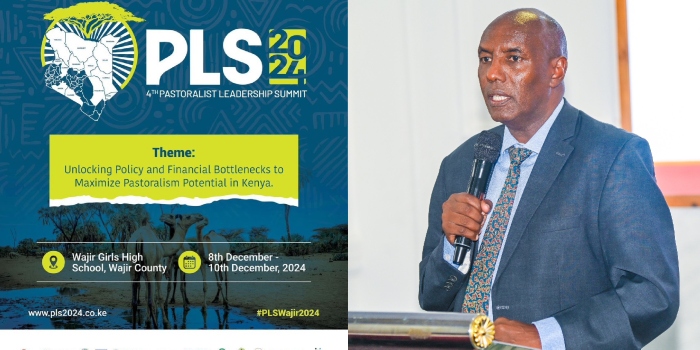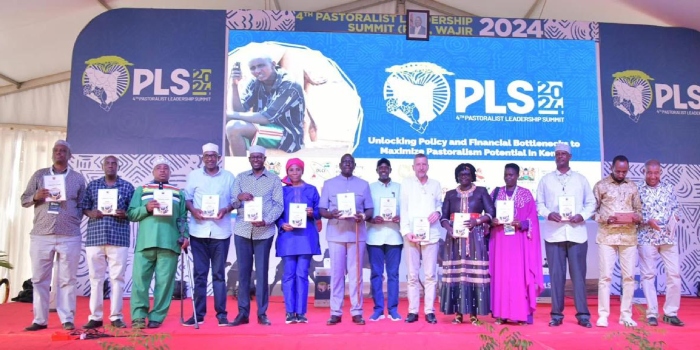A high-level workshop bringing together government agencies, development partners, and regional stakeholders has kicked off in Nairobi to fast-track the implementation of resolutions made at the 4th Pastoralist Leadership Summit (PLS).

The summit, which took place in December 2024 in Wajir, marked a turning point in Kenya’s approach to pastoralist development.
It resulted in key policy decisions and institutional commitments now entering the implementation phase.
The Multi-Sectoral Technical Team Workshop, officially opened by the Principal Secretary for the State Department for the Arid and Semi-Arid Lands (ASALs) and Regional Development, Kello Harsama, is a major step toward translating summit resolutions into actionable results.
"Today, I officially opened the Multi-Sectoral Technical Team Workshop on the implementation of the 4th Pastoral Leadership Summit (PLS) Resolutions, here in Nairobi. This important workshop brings together key government departments, agencies, and partners," PS Harsama said on his official social media platforms.

The team includes representatives from national and county governments, development organisations, and research institutions, reflecting a collaborative approach to addressing the complex challenges faced by Kenya’s pastoralist communities.
According to Harsama, the focus areas under discussion include peace and security, livestock development, human capital investment, basic services, and infrastructure.
"This transformative initiative targets peace, security, pastoralism, livestock, human capital, infrastructure & basic services. A multi-sectoral technical working group will steer implementation in line with PDMIS for transparency & accountability," Harsama stated.
These priorities are designed to address both the persistent structural constraints of the ASAL regions and the evolving threats linked to climate change, resource conflict, and marginalisation.
Participants are working to validate and finalise an implementation matrix that aligns directly with the Presidential Directives Management Information System (PDMIS), which is being positioned as a central tool for ensuring accountability and tracking progress.
The Pastoralist Parliamentary Group (PPG), which has played a leading role in organising the summit and driving its outcomes, remains instrumental in keeping pastoralist issues high on the national agenda.
Its members have helped guide the development of policies that reflect the lived experiences and aspirations of communities in the ASALs.
Their leadership is recognised as essential in ensuring the resolutions do not stall at the policy level but are delivered effectively on the ground.
Key partners, including the Drylands Learning and Capacity Building Initiative (DLCI), the International Livestock Research Institute (ILRI), and the Jameel Observatory, are playing significant roles in anchoring the technical aspects of the summit implementation.
Among the initiatives being supported are the development of a dry lands curriculum, support to the Camel Center of Excellence, and advancing key thematic areas around livestock and pastoralism.
These efforts aim to ensure the solutions being rolled out are evidence-based, sustainable, and rooted in local knowledge.
This workshop builds on the momentum generated by recent government actions.
In a major milestone, President William Ruto fulfilled a commitment made at the summit by operationalizing the National Livestock Development and Promotion Service earlier this year.
This move is expected to significantly strengthen Kenya’s livestock sector, which is the backbone of the ASAL economy and a livelihood mainstay for millions.
In line with this, President Ruto appointed Mohamed Ibrahim Elmi as the non-executive Chairperson of the National Livestock Development and Promotion Service, along with the nomination of board members, including Dr. Hassan Guyo Roba, Erukudi Chris Ekustan, Hon. Aloise Loitomaga, Ubah Gedi Ibrahim, and Justine Simayiai Rakita.
These appointments aim to activate the Pastoralist Livestock and Livestock Products Marketing Board, first established by legal notice in 2016, to function effectively and provide strategic oversight.
The contributions of the Frontier Counties Development Council (FCDC), a regional economic bloc representing pastoralist counties, have also been recognized.
Its continued support and co-hosting of the PLS underscore the growing alignment between county and national priorities.
As the workshop enters its second day, discussions will center on deepening coordination among ministries, finalizing the roadmap for implementing summit resolutions, and ensuring that progress is measured and reported transparently.
The shared commitment to building inclusive systems and structures is laying a strong foundation for transformational change in Kenya’s pastoralist regions.
The initiatives stemming from the Pastoralist Leadership Summit mark a significant pivot toward integrated development planning for the ASALs.
Through strategic partnerships, robust leadership, and sustained government support, the current process seeks to reverse decades of underinvestment and marginalisation, while unlocking the full potential of Kenya’s dry lands and livestock economy.

